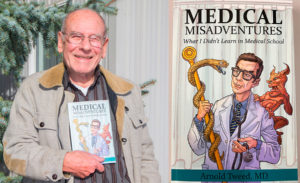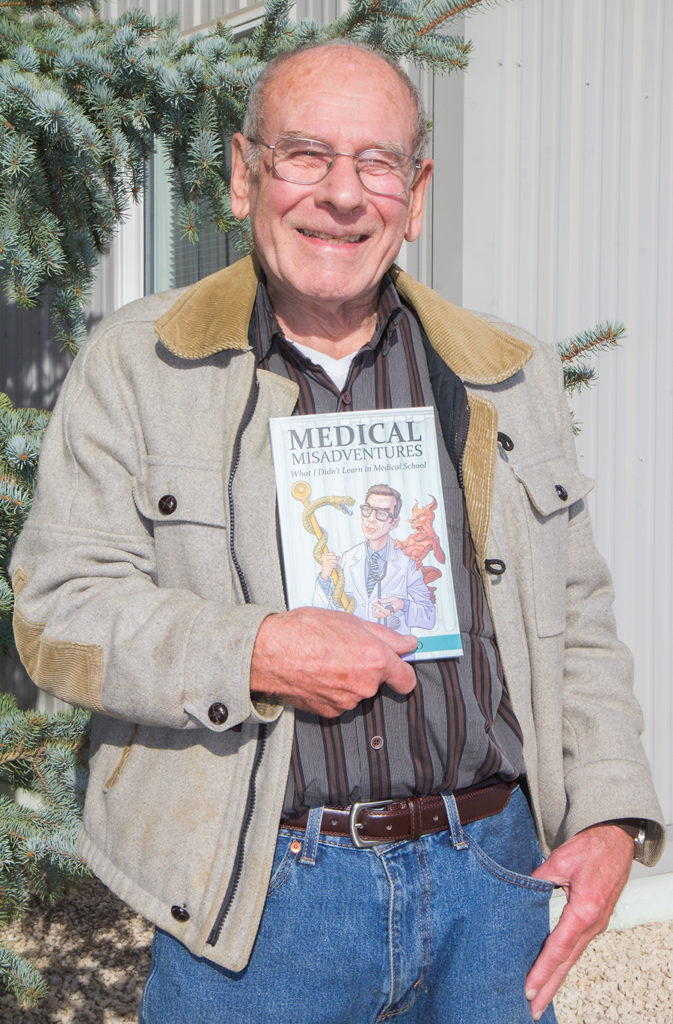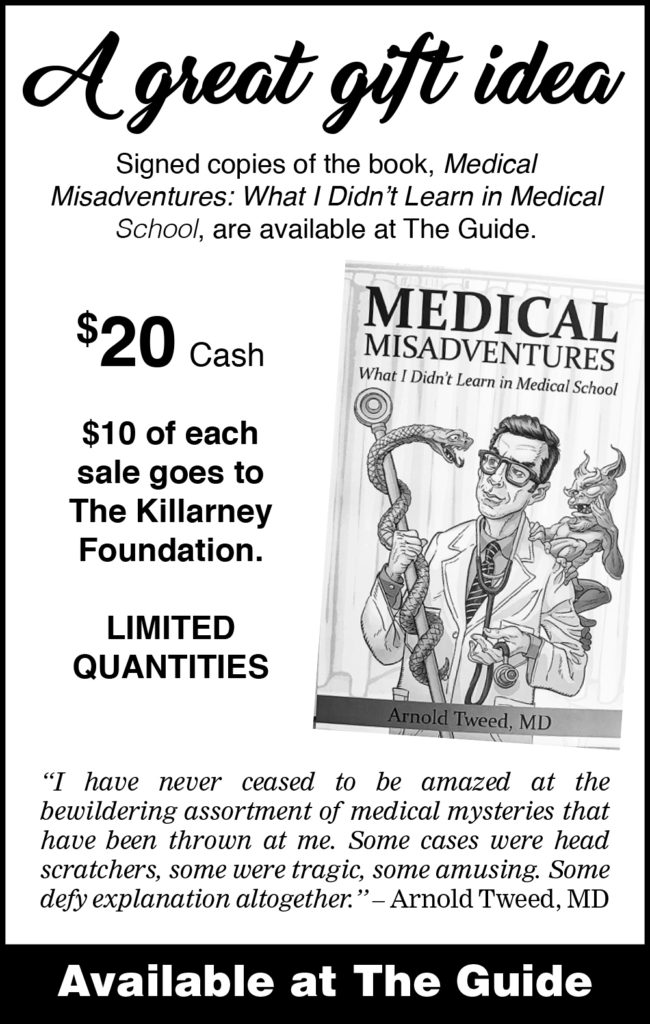
Arnold Tweed, MD, reveals the inner world of doctors, spirituality, and life in the Middle East
BY KIM LANGEN
Not everything is explained in medical school.
Arnold Tweed was a son of the prairies who began life on a farm near Holmfield, and eventually grew up to become a medical doctor, spending several years as an emergency room physician, and working overseas.
Renowned for his entertaining “dinner stories,” Dr. Tweed recently began putting them down into print as a blog, and has now published them as a book.
These colourful, personal stories detail how sometimes his life as a doctor led to surprises, revelations, and occasionally calamities – none of which he was prepared for during his training. Each of them was a “once-in-a-lifetime” experience, he says.
‘Medical Misadventures: What I Didn’t Learn in Medical School’ is a three-part visit into the life and consciousness of this learned man, and a lot of it is very funny.
“The stories span the time from medical school to retirement,” writes Tweed. “Some of these describe medical mishaps of various sorts, and some are merely musings on medical issues of interest. They are a collection of the incidents that underscore our frailties as physicians, and they have taught me humour, humility, and perhaps some humanity.”
The medical misadventures include tales such as that of an exotic dancer in Winnipeg, stripped down to her G-string, who is bitten by her western diamond-back rattler on stage, and treated at the ICU;
a two-year-old that swallows a long line of packing cord (later revealed…); the Munchausen’s Syndrome patient writhing in abdominal pain on a hospital gurney; and of mysterious secreted six-pack bottles of beer earmarked for an abstemious physician.
There is also the story of the alcohol-loving Mary B., run over by a train on a rail bridge in The Pas, who lived to tell the tale; and the shocking, apparent mutilation and murder of a Winnipeg seamstress – which was not what it appeared.
Tweed also delves into the issue of aging, of death, and of medically assisted dying.
And one of the most riveting chapters concerns the sorry death of an inebriated soldier.
In ‘A Beating Heart in a Warm Corpse’ Tweed relates the ground-breaking medical events of July 1975, which began after a young soldier, who had drank himself to the point of unconsciousness, was evicted from a bar in Winnipeg’s old garment district by two bouncers, who dragged and then tossed him outside.
The soldier, Corporal Donald Junor, was dropped face down on Albert Street, where his head hit the concrete “like a melon dropped from a truck.”
Diagnosed with lethal brain damage, Junor’s kidneys were later harvested in the hospital, for organ donation, while his heart was kept beating on life support.
The two bouncers are later charged with murder. And the defense used by their counsel was the argument that death had not occurred on Albert Street – but days later by the doctors in the hospital.
Tweed himself signed the death certificate for Corp. Junor, and later appeared during the courtroom trial. The ensuing, national story that unfolded changed the course of medical history.
Explaining that “dying was a process, not an event,” helped to clarify the issues of life and death, he writes.
The second section of the book deals with the mystery of prayer and the hand of God, and includes the story of a 16-year-old Selkirk boy who, in 1976, collapsed during a 40-km snowshoe race, and froze to death.
His heart had stopped for 85 minutes – the longest time for cardiac arrest with complete recovery – because he was brought back to miraculous, healthy life by doctors in the Selkirk Hospital.
Then there are the stories of near-death experience, which includes the inspirational story told by our own Brian Moore, of Killarney’s Moore Building Centre Ltd., who suffered a serious heart attack in 2015, and came back to life.
And in the third section, Tweed examines the maladies of aging, including the sorrowful, losing dementias such as Alzheimer’s, Parkinson’s, Huntington’s, and vascular dementia. And living beyond the age of 80 means around a 30 per cent chance of you developing a dementia, he writes. Women, who live longer than men, will eventually outnumber men with dementia by two-to-one.
Tweed also takes the reader into the Middle East, where he and his wife Glenyce spent five years. There, he relates the toe-curling tale of The Last Sperm; the battle against desert re-hydration (much of it involving illicit home fermentation); and describes how and why western people and the Saudis struggle to find common ground – even apart from the wine.
Medical Misadventures, by Arnold Tweed, MD, was a great read, and interesting and informative from start to finish, especially if you have an interest or experience in medical affairs.
It is published by Bellefield Publishing, and can be purchased at the Killarney Guide office ($20 per copy) and at Amazon.ca, in both Kindle and print formats.
The book is also carried at McNally Robinson bookstores – plus you can borrow a copy of it from the local library.
About the Author: Arnold Tweed went to high school in Killarney, and graduated from Brandon College in 1959. He graduated with an MD from the University of Manitoba in 1964.
He has practiced as a GP, in emergency medicine, intensive care, and anaesthesiology; and also with medical research, teaching, and medical administration.
He has worked in Canada, Denmark, New Zealand, Oman, Bahrain, Saudi Arabia, and Nepal.
Medical Misadventures is his first book. He is already working on a second one – Glendenning Days – which will be stories of the Glendenning District, and of his early years in a one-room country school.

THE TALES OF DR. ARNOLD TWEED – Dr. Arnold Tweed, a retired MD and Holmfield son, has released his first book, a medical memoir called ‘Medical Misadventures: What I Didn’t Learn in Medical School.’ It’s rich with tales of the emergency room, the Middle East, and of a number of intriguing and baffling cases – many of them dinner-party hilarious.


